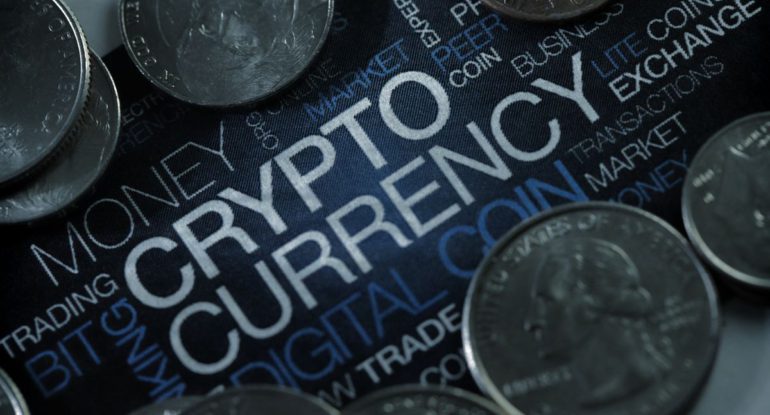Everything About Crypto Gaming Industry In 2023

One cannot overlook the crypto’s impact on the gaming industry. The Crypto gaming industry currently makes up more than a third of the global population. We’ll look at crypto gamers’ demographics and how big gaming companies leverage bitcoin to increase their market. Crypto gaming is a type of gaming that integrates blockchain technology and cryptocurrencies into the gaming industry. It enables players to own and trade in-game assets as digital tokens, which can be bought and sold on decentralized exchanges.
Here is everything you need to know about crypto gaming:
What is Crypto Gaming?
Crypto gaming is a new type of gaming that enables players to buy, sell, and trade in-game assets using cryptocurrencies. This is made possible by integrating blockchain technology into the gaming industry, which enables players to own and control their in-game assets as digital tokens.
How does Crypto Gaming work?
In crypto gaming, players can buy and sell in-game assets as digital tokens on decentralized exchanges. These tokens are backed by blockchain technology, which ensures that they are unique, rare, and valuable. Players can use these tokens to trade, sell or buy other in-game assets or even use them in other games.
What are the benefits of Crypto Gaming?
The benefits of crypto gaming include increased player ownership and control over in-game assets, reduced risk of fraud, increased security, and increased transparency. Players can also earn real-world value for their in-game assets and use them for trading in other games or even selling them on decentralized exchanges.
What are the challenges of Crypto Gaming?
One of the biggest challenges of crypto gaming is the need for players to have some knowledge of cryptocurrencies and blockchain technology. Also, the volatility of cryptocurrencies can make it difficult for players to determine the real-world value of their in-game assets. There is also the risk of scams and fraudulent activities in the crypto gaming space.
What are some examples of Crypto Games?
Some examples of crypto games include Axie Infinity, Decentraland, CryptoKitties, Gods Unchained, and Splinterlands. These games allow players to own and trade in-game assets as digital tokens, which can be bought and sold on decentralized exchanges.
In summary, crypto gaming is a new and exciting development in the gaming industry that offers players increased ownership, control, and real-world value for their in-game assets. While there are some challenges associated with the technology, the potential benefits are significant, and the industry is likely to grow in the coming years.
Crypto Gaming Potential
The crypto gaming business generated $321M in revenue, with 41.9 million gamers possessing cryptocurrency. According to Newswagg’s research, Millennials, who range from 21 to 38 years old, make up the largest age group.
Gamers are also considerably more likely to hold cryptocurrency. Fifty-five percent of Millennial gamers own cryptocurrency, compared to only 5% of all Millennials. Eighty percent of gamers who hold crypto want to use it for crypto gaming purchases, and 67 percent believe there will be more opportunities to use cryptocurrencies in gaming in the future.
Owners of the Global Crypto Gaming Industry
With 22.6 million gamers holding cryptocurrencies, the APAC area has the most significant ownership rate. Europe has 5.9 million gamers in the Middle East, Africa, Latin America, and North America.
Gaming and cryptocurrency revenue on a global scale
The Asia-Pacific region, with US$157.3 million in revenue (49 percent), was followed by North Americans with US$80.3 million (25 percent), Europe, Latin America, the Middle East, and Africa.
Revenue from the platforms
Mobile games brought in the most money (40%) with $128.4 million, followed by Console games ($89.9 million), Downloaded/Boxed PC games ($89.9 million), Tablet games ($89.9 million), and Browser PC games ($89.9 million).
The crypto market has experienced strong growth over the last week with market cap exceeding US$21trn for the first time since Mid Jan.
Follow @MHC_Digital for your weekly market update and important crypto news#cryptonews #mhcdigitalfinance #cryptocurrencies #cryptotrading https://t.co/bNuBfgSXPb
— Crypto Gaming United | CGU (@CryptoGamingUtd) March 29, 2022
Guide to the Crypto Gaming World
Cryptocurrency data by major gaming corporations:
The Daily Gazette reports: – September 2021 – Is Cryptocurrency the Future of Online Gaming?
Players can accumulate and trade virtual assets using cryptocurrencies, which they can exchange and trade anywhere in the world. As a result, it provides a safe and straightforward way for the gaming industry to make money.
Financial Express: How Crypto Gaming (GameFi) is Becoming the New Way to Make Money – September 2021
Online gaming, in particular, is famous for innovative ideas in this field. The developers are developing creative ways to use cryptos to buy and sell in-game items, cosmetics, unlock characters, and more.
TripleA: Southeast Asia’s leading game publisher now takes cryptocurrencies – June 2021
Cherry Credits is a prominent game publisher and developer of micropayment solutions for digital content and gaming channeling. They have teamed up with TripleA to offer cryptocurrencies as a new payment option.
Also, read – Key terms in the world of blockchain gaming
Conclusion
Crypto games revolutionize the gaming industry by allowing gamers to earn money while playing. As more gamers accept cryptocurrency, gaming companies will have a vast market potential to reach crypto enthusiasts worldwide. Crypto gaming is a rapidly emerging trend that is transforming the gaming industry. By leveraging blockchain technology and cryptocurrencies, players can own and trade in-game assets as digital tokens, increasing their ownership and control over their virtual world. Although there are challenges associated with the technology, such as the need for knowledge of cryptocurrencies and the risk of fraud, the potential benefits are significant, including increased security, transparency, and real-world value for in-game assets. As the industry continues to grow, we can expect more innovations and advancements in the crypto gaming space, offering players new and exciting ways to engage with their favorite games.




























































